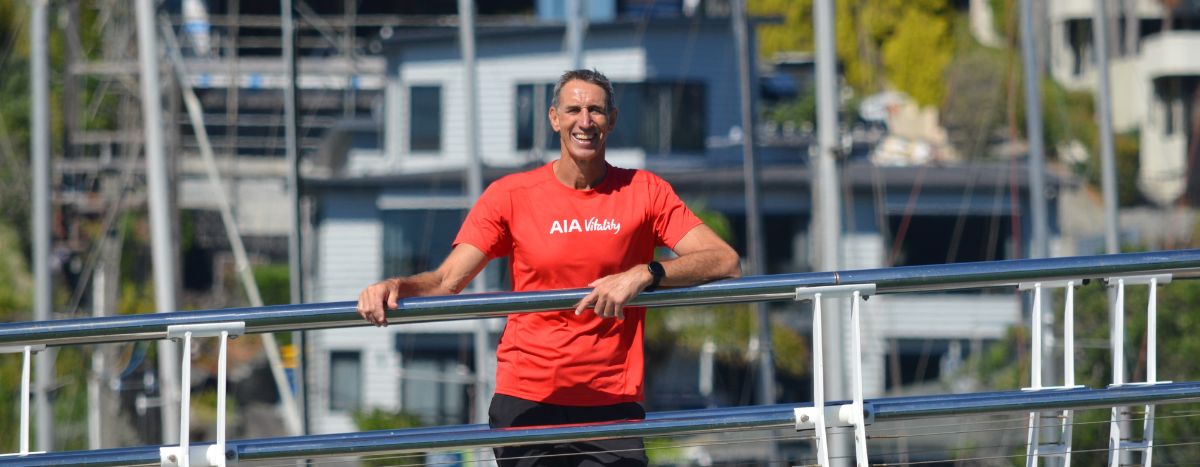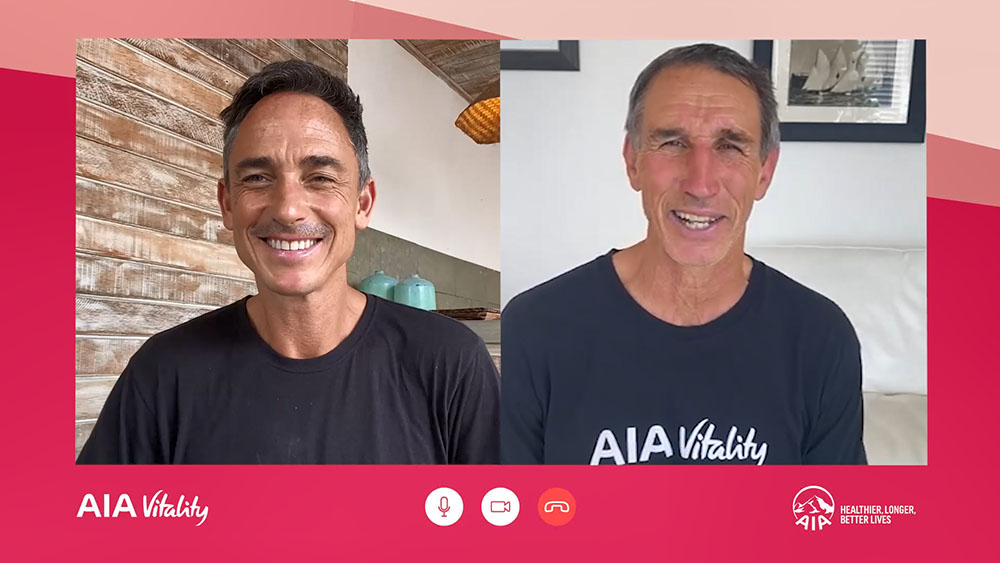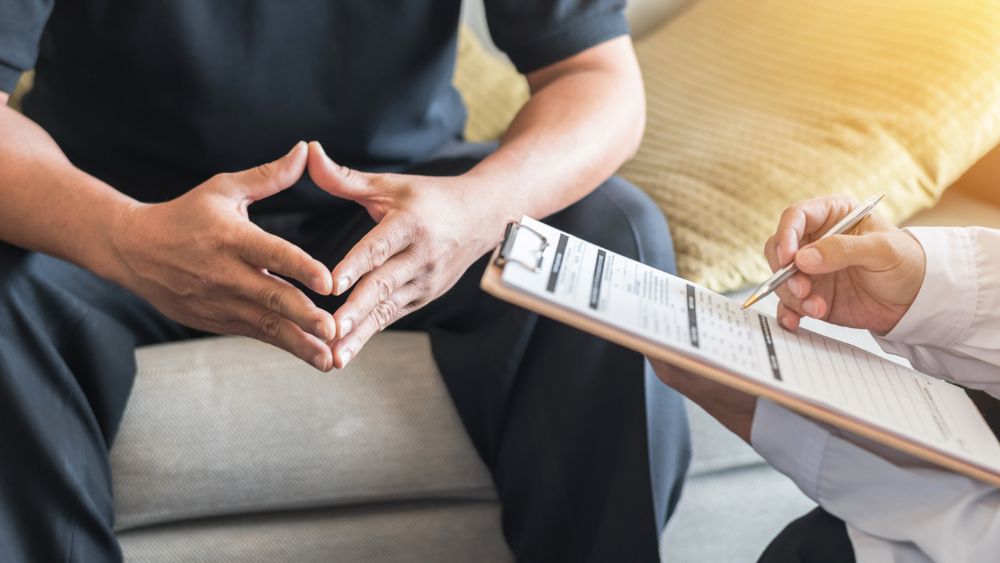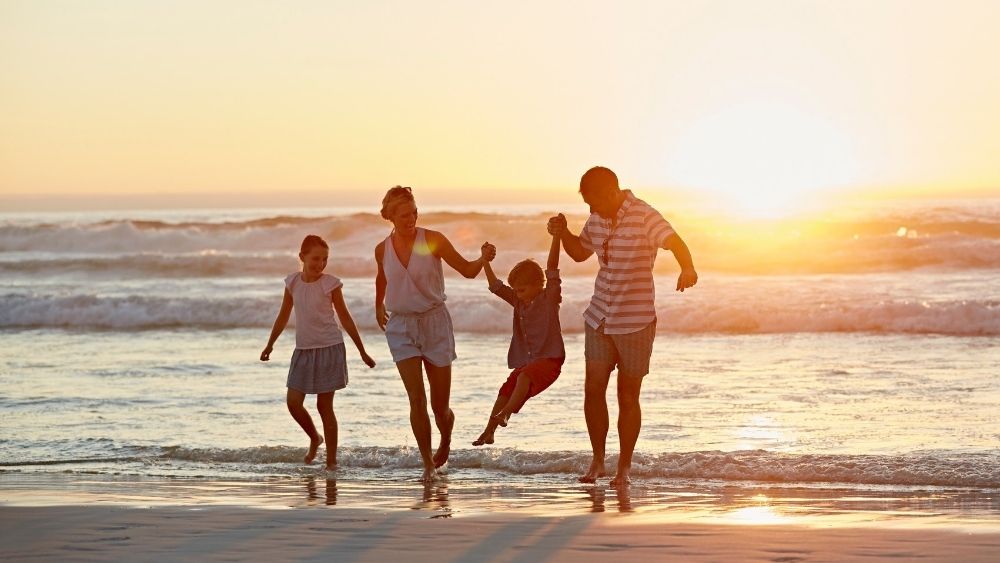Former All Black and AIA Vitality Ambassador, Ian Jones has spent much of his life in a team environment, whether on the rugby field, with his whānau, or in his work encouraging others to live healthier, more connected lives.
His belief is simple: looking after your health isn’t selfish. It’s a responsibility. It’s a way of showing up for your kids, your mates, your partner, and your wider community.
Being part of a team has taught Ian the value of backing each other, and that starts with looking after yourself so you can be fully present for others. When individuals take responsibility for their own wellbeing, the whole team becomes stronger. It’s not just about lifting others up - it’s about making sure you’re in the right place to do so.
This Men’s Health Week, Ian shares why small steps and consistent habits matter, why self-care should be seen as an act of love, and how having honest conversations with friends, colleagues, teammates and family can help create a healthier future for men in Aotearoa.
Why men's health matters to me
My passion for men’s health is deeply personal. It’s rooted in understanding what energises me, not just physically, but mentally and socially too. I’ve always drawn strength from being around good people. That energy and connection you get from spending time with your mates has a powerful effect on your mental wellbeing.
For me, that’s one of the biggest reasons I still train with others. It’s not about chasing fitness goals anymore; it’s about the commitment we make to show up for one another. When you turn up for me, I’ll turn up for you. That shared effort and sense of community is something I rely on. It gives me fuel.
Self-care isn't selfish
There’s this old school belief that taking time for yourself is selfish. But I see it differently.
Most of us are givers by nature, to our families, to our work, to our mates. But the truth is, you can’t give if you’re running on empty. If I take time to go for a run or catch up with a friend over coffee or a beer, that isn’t selfish. It’s how I reset, recharge, and come back stronger for the people around me.
Looking after yourself isn’t about putting yourself ahead of others. It’s about making sure you’ve got enough in the tank to support them properly. In my eyes, that’s not selfish. That’s love.
What being a role model means
I’ve got three incredible kids - all young adults now - and I’ve seen how the habits we model as parents shape the way they approach life.
My wife and I have always believed in showing consistency. That might look like scheduling time to go for a run, being open about our personal goals, or simply making the effort to turn up when it matters. Over time, those small things add up. That consistency becomes part of who we are, and it shows them what’s important through action, not just words.
But it’s not only about being a role model. It’s also about being present in their lives. Standing on the sideline, learning about what excites them - even if it’s something you know nothing about! When my youngest recently got into bouldering (a type of rock climbing), I gave it a go with him. It was something completely outside my comfort zone, but it helped us connect in a new way and taught me a few things too.
Small steps that make a big difference
There’s this pressure in life to be brilliant at everything. But I’ve come to realise that being consistent and willing to give things a try, is actually a great place to be.
It’s those small, regular steps; the walk, the conversation, the effort to show up, that have the biggest long-term impact. You don’t need to overhaul your life to see change. Just commit to showing up in small ways, and others will notice. Your kids will pick up on it, even if they don’t say anything. And it’s not just your own children. I spend a lot of time with young New Zealanders, and I’m constantly blown away by their empathy, openness and willingness to embrace change. They inspire me.
Starting the kōrero
Talking about mental health isn’t always easy, especially for men. But one of the biggest lessons I’ve learned, especially from my son Noah who works in the mental health space, is the value of creating a dialogue rather than delivering a lecture.
We don’t need to have all the answers. Sometimes, just listening and asking a question is enough. It could be while you’re walking the dog, throwing a ball around, or even just sitting in the car. When those moments come, lean into them.
And when you’ve had a tough day, don’t bottle it up. Don’t let your kids think it’s something they’ve done wrong. Say, “It’s been a tough one today, but I’m so glad to be home.” That openness builds trust. It shows them that talking is okay, and it teaches them that vulnerability is strength.
Moving beyond 'tough it out'
Many of us grew up hearing “harden up” or “toughen up.” And sure, there’s value in resilience, but we’ve also got to be honest about how that mindset shaped us, and what it’s done to our relationships.
It’s okay to reflect on those lessons and realise they don’t all need to be passed down. Just because it’s how things have always been, doesn’t mean it’s how they should stay. You don’t need to transform overnight. Start with reflection. Begin making small shifts. Others will notice, even if they don’t mention it. And when your mates or your kids see the change in you, that might just inspire them to do the same.
My one message for Men's Health Week
Take the time to prioritise yourself. That act of reflection, just stopping for a moment to check in with yourself, is the beginning of something better.
Men’s Health Week is the perfect time to reset. You don’t need to take huge strides. Just make a start. Make small, consistent changes. They’ll have a bigger impact than you think, on your own confidence, on your relationships, and especially on your kids.
There’s no better feeling than seeing your children proud of you. And I can tell you from experience, when they mirror your behaviours or smile because they’ve noticed you’ve made a change, that’s something special.
So be present. Be consistent. Start small. Because looking after yourself isn’t selfish. It’s strong. And it’s for them.







